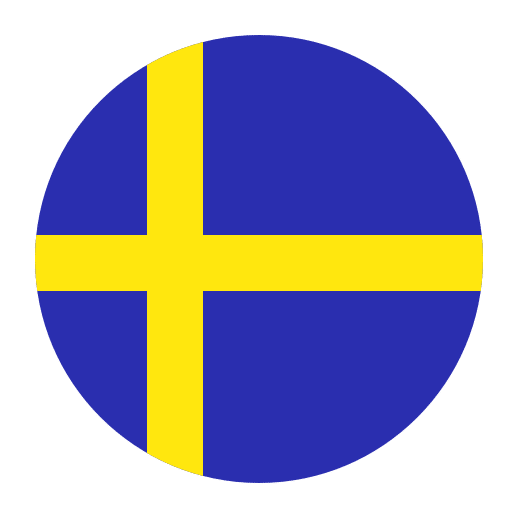Learning a new language can be a thrilling and enriching experience. Whether you’re planning a trip to Sweden, want to connect with Swedish friends, or are simply intrigued by the beauty of the Swedish language, mastering everyday phrases can be a great way to start. Swedish is known for its melodic intonation and relatively straightforward grammar, making it an accessible language for English speakers. In this article, we will explore some essential Swedish phrases that you can use in your daily conversations.
Greetings and Introductions
One of the first steps in learning a new language is mastering the basic greetings and introductions. These phrases will help you start conversations and make a good impression.
Hej – Hello
This is the most common way to say “hello” in Swedish. It’s friendly, informal, and used in almost all situations.
God morgon – Good morning
Use this phrase to greet someone in the morning. It’s polite and shows that you care about the person’s well-being.
God eftermiddag – Good afternoon
This phrase is used to greet someone in the afternoon. It’s less common than “hej,” but still useful.
God kväll – Good evening
Use this to greet someone in the evening. It’s a bit more formal than “hej.”
Hej då – Goodbye
This is the standard way to say “goodbye” in Swedish. It’s casual and appropriate for most situations.
Vad heter du? – What is your name?
This phrase is useful for getting to know someone. It’s a friendly way to ask for someone’s name.
Jag heter… – My name is…
Use this phrase to introduce yourself. It’s straightforward and easy to remember.
Hur mår du? – How are you?
This is a common way to ask someone how they are doing. It’s polite and shows interest in the other person’s well-being.
Jag mår bra, tack. – I am fine, thank you.
This is a common response to “Hur mår du?” It’s polite and shows that you appreciate the other person’s concern.
Common Courtesy Phrases
Politeness goes a long way in any language. Here are some essential Swedish phrases that will help you navigate social situations with ease.
Tack – Thank you
This is one of the most important words you’ll need. It’s used to express gratitude in almost all situations.
Varsågod – You’re welcome
Use this phrase in response to “tack.” It’s polite and shows that you’re happy to help.
Ursäkta – Excuse me
This is useful for getting someone’s attention or apologizing for a minor mistake.
Förlåt – Sorry
Use this word to apologize. It’s straightforward and can be used in both minor and more serious situations.
Kan du hjälpa mig? – Can you help me?
This phrase is useful for asking for assistance. It’s polite and shows that you respect the other person’s time and effort.
Jag förstår inte – I don’t understand
Use this phrase if you’re having trouble following a conversation. It’s a polite way to ask for clarification.
Basic Conversation Starters
Engaging in small talk is a great way to practice your Swedish and get to know people better. Here are some phrases to help you start conversations.
Vad gör du? – What are you doing?
This is a common way to ask someone about their activities. It’s informal and friendly.
Var kommer du ifrån? – Where are you from?
Use this phrase to learn more about someone’s background. It’s a great conversation starter.
Hur gammal är du? – How old are you?
This is a straightforward way to ask someone’s age. Use it with caution, as it can be considered a bit personal.
Har du syskon? – Do you have siblings?
This is a friendly way to learn more about someone’s family. It’s a good question for getting to know someone better.
Vad gillar du att göra på fritiden? – What do you like to do in your free time?
This question is perfect for finding common interests and hobbies.
Dining and Food-Related Phrases
Food is an important part of any culture. Knowing how to navigate dining situations can enhance your experience in Sweden.
Kan jag få menyn, tack? – Can I have the menu, please?
Use this phrase when you sit down at a restaurant and want to see the menu.
Vad rekommenderar du? – What do you recommend?
This is a great way to get suggestions from the waiter or waitress. It shows that you’re open to trying new things.
Jag skulle vilja ha… – I would like to have…
Use this phrase to order food or drinks. It’s polite and straightforward.
Notan, tack. – The bill, please.
Use this phrase when you’re ready to pay. It’s a polite way to ask for the check.
Det var jättegott! – It was delicious!
This is a wonderful way to compliment the chef or restaurant. It shows that you enjoyed your meal.
Shopping Phrases
Whether you’re buying souvenirs or groceries, these phrases will help you navigate shopping situations.
Hur mycket kostar det? – How much does it cost?
Use this phrase to ask about the price of an item. It’s essential for any shopping trip.
Kan jag betala med kort? – Can I pay with a card?
This is useful for knowing whether you can use a credit or debit card.
Har ni det i en annan storlek? – Do you have it in another size?
Use this phrase if you need a different size for clothing or shoes.
Kan jag prova det? – Can I try it on?
This is a useful phrase for trying on clothes. It’s polite and straightforward.
Jag tittar bara. – I am just looking.
Use this phrase if you’re browsing and don’t need assistance. It’s a polite way to decline help.
Travel and Directions
Getting around in a new country can be challenging. These phrases will help you navigate public transport and ask for directions.
Var ligger närmaste busshållplats? – Where is the nearest bus stop?
This phrase is useful for finding public transportation.
Hur kommer jag till…? – How do I get to…?
Use this phrase to ask for directions to a specific place. Fill in the blank with your destination.
Vilken väg är det till…? – Which way is it to…?
This is another way to ask for directions. It’s polite and shows that you’re trying to navigate on your own.
Jag behöver en taxi. – I need a taxi.
Use this phrase if you need to hire a taxi. It’s straightforward and easy to remember.
Kan du visa mig på kartan? – Can you show me on the map?
This is a useful phrase for getting more precise directions. It shows that you’re prepared and trying to understand.
Emergency Phrases
In case of an emergency, knowing some basic phrases can be crucial.
Hjälp! – Help!
This is the most straightforward way to ask for help in an emergency situation.
Ring ambulansen! – Call an ambulance!
Use this phrase if you or someone else needs immediate medical attention.
Jag är sjuk. – I am sick.
This is a useful phrase for explaining your condition. It’s straightforward and to the point.
Jag har tappat bort mig. – I am lost.
Use this phrase if you’re lost and need assistance. It’s polite and shows that you need help.
Jag behöver en läkare. – I need a doctor.
This is a crucial phrase for medical emergencies. It’s straightforward and easy to remember.
Expressions of Time
Understanding and expressing time is essential for daily activities. Here are some phrases to help you with that.
Vad är klockan? – What time is it?
Use this phrase to ask for the current time. It’s straightforward and useful in various situations.
Jag är sen. – I am late.
This is a useful phrase for explaining why you’re not on time. It’s polite and shows that you’re aware of your tardiness.
Vi ses senare. – See you later.
Use this phrase to say goodbye when you expect to see the person again soon. It’s friendly and casual.
Kan vi träffas imorgon? – Can we meet tomorrow?
This is a useful phrase for making plans. It’s polite and shows that you’re interested in spending time with the person.
Weather-Related Phrases
Talking about the weather is a common conversation starter. Here are some phrases to help you discuss the weather in Swedish.
Hur är vädret idag? – How is the weather today?
Use this phrase to ask about the current weather. It’s a great conversation starter.
Det är soligt. – It is sunny.
This is a straightforward way to describe sunny weather. It’s useful for casual conversations.
Det regnar. – It is raining.
Use this phrase to describe rainy weather. It’s straightforward and easy to remember.
Det är kallt. – It is cold.
This is a useful phrase for discussing cold weather. It’s straightforward and to the point.
Det är varmt. – It is warm.
Use this phrase to describe warm weather. It’s simple and easy to remember.
Conclusion
Learning a new language is a journey that requires practice, patience, and perseverance. By mastering these essential Swedish phrases, you’ll be well on your way to engaging in everyday conversations with confidence. Remember that the key to language learning is consistent practice and real-life application. Don’t be afraid to make mistakes; they are a natural part of the learning process. With time and effort, you’ll find yourself becoming more fluent and comfortable in Swedish. Lycka till! (Good luck!)

